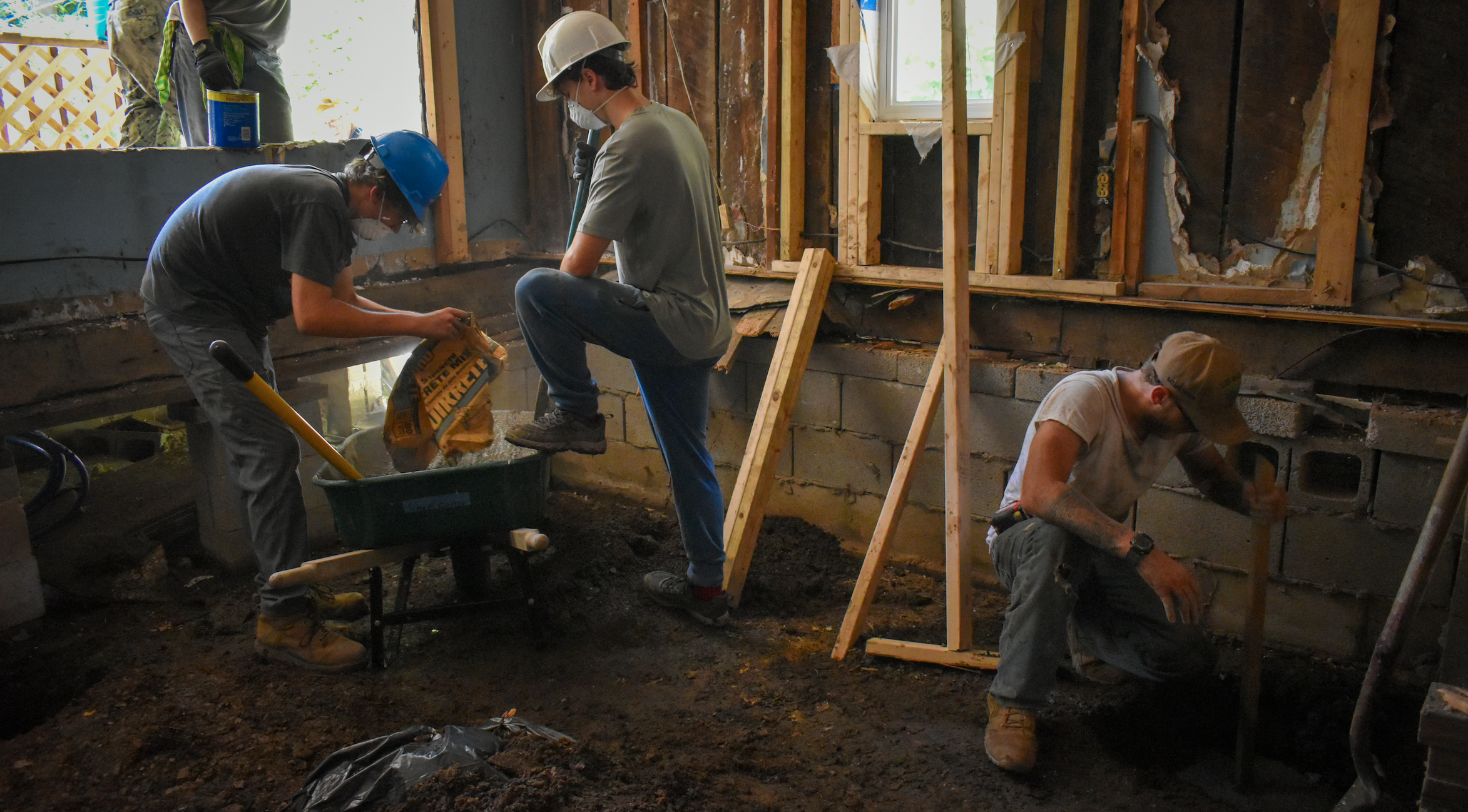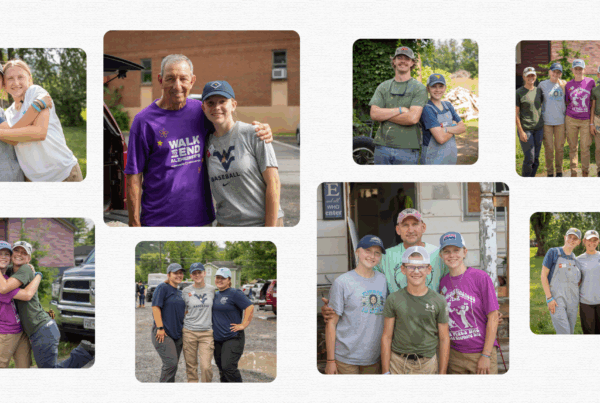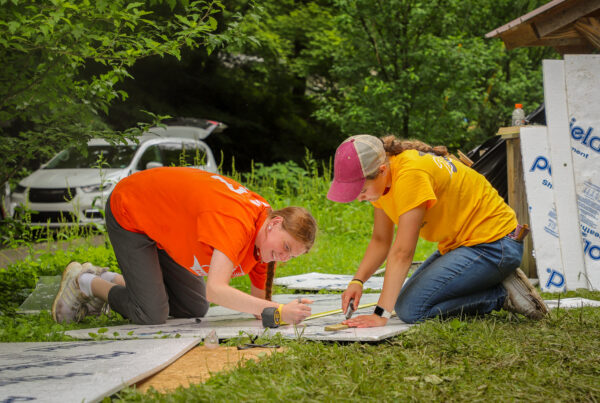Hello and welcome back wonderful people. I missed you, I truly did.
Here in ASP Land, we are getting closer and closer to the end of the Summer. Some centers are starting their last week of volunteers this week, which is absolutely wild. Though some days feel like they crawl by, the past few months have flown by and I cannot believe that we are this close to the end. I am truly thankful to have had you along for the ride.
Enough of that sappy stuff. Let’s get down to business.
I started this week in the marvelous Cabell County, West Virginia. Cabell was a great shot of rest and community after a crazy previous week— we swam in a lake, sang along to Taylor Swift, and I got to eat at Cookout for the first time since leaving home. I was surprised to see a church from Rockingham, NC, where my parents grew up and my grandparent’s live. I later found out that it was actually the same church that my parents got married in, and I was once again reminded of the community that surrounds us all, even when we feel far from home.
On Tuesday, Cabell had their culture night featuring Audy, who works for the local Heritage Farm Museum. While speaking to us about Appalachia and life in general, Audy said that when giving tours to kids at the museum, he used to ask them what they wanted to be when they grew up. One day, he realized that he wanted to try a different question instead:
“What problem do you want to solve?”
Those seven words have lingered in my mind like the smell of the county dump this week. Audy said that we should ask ourselves that question rather than think about what we want to be and do. What problem do I want to solve?
We all face problems, big and small. Loneliness, a lost shoe, a leaking roof, anxiety, the list goes on and on. Here at ASP, we aim to fix the problem of substandard housing in Appalachia. It drives our mission, motivates staffers in the morning, and gives volunteers pride in their work when they come back in the afternoon. When we find something that we’re passionate about, it helps us forge our own path and open our own doors. We don’t know what the world or the job market will be like in 20 years, but we do know that we will always have needs to be met.
This idea came back in a tangible way later in the week when I was in Breathitt County visiting a home that goes by the codename of Sod Poodles. Originally, ASP signed on to gutting the house, mold mitigation, and subbing the roof with the intention of doing more later. As volunteers began to work on the home, the need for repairs became increasingly clear. The Breathitt staff is now essentially building a new home from the inside out, working on everything from the subfloor to wall repair to vinyl siding.
Walking into the bare bones of Sod Poodles, you could just feel the passion and love poured into the project. From watching the volunteers pour their sweat into the concrete they were mixing, to seeing the smile on Center Director Matt Akins’ face when he spoke about the project, it became clear that this is what happens when we find a problem and work to solve it as a community.
With all this talk of community, I want to add to Audy’s question: What problem do you want to solve, and who can help you solve it? Community is what makes us strong, and without those that allow us to rest, make us feel special, and scream along to Taylor Swift in the car, we would be a whole lot weaker. Find those people and work with them. Maybe it’s a neighbor, someone who can answer a question or even just a friend who tells you to go for it. Sod Poodles is surely not being rebuilt in a day, nor is it being rebuilt alone, and the project is better for it.
My takeaway for this week has two steps because I’m the writer and I can do that. The first step is to figure out your problem. Is it spiritual? Emotional? Physical? What do you see needing a change, and how can you help change it?
Once you do pinpoint that, move on to step two— find the people who can help you solve it. If you’re a mover, find a shaker. If you can put on the new tin, find someone who can help you take the old stuff off.
We can work together for good, one step at a time. Let’s get out there and solve some problems.
Lauren Rhodes
Story Gathering Intern




